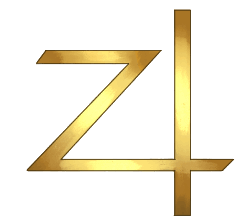
WESTERN DUALISM
Dualism is the philosophical idea that the universe is divided into two opposing sides. Good and evil, mind and body, humans and nature, man and woman, light and dark, and so on. Its origins can be traced back to Ancient Persia and the religion of Zoroastrianism. Where the universe was a cosmic battle between the two gods. The good god of Ahura Mazda and the evil god of Angra Mainyu. In Zoroastrian theology, the goal of life was to live morally, so that one’s soul could enter Garōdmān (heaven), while a life of wrongdoing led to Duzakh (hell). Unlike later on in Christianity, one did not have to be a Zoroastrian to achieve heaven, moral behavior itself was the key. When Jews were freed from captivity they were deeply influenced by Zoroastrian theology and adopted many aspects of it. Later on in Greek philosophy, dualism wasn’t as rigid but still appeared in a more metaphysical form. Plato distinguished between the world of ideal Forms, which is perfect and eternal, and the material world, which is merely a shadow of that higher reality. For Plato, the soul is distinct from the body and capable of grasping eternal truths beyond the physical world. This philosophical dualism emphasized the separation of the immaterial and the material, rather than the moral good vs evil struggle emphasized in Zoroastrianism.
From this Jewish origins and Hellenic influence, Christianity was born out of a deeply dualistic worldview, both morally and metaphysically. This was further developed by Church Fathers like Augustine of Hippo in the Late Roman Empire. Augustine combined Platonism with Christian theology, emphasizing the conflict between flesh and spirit and portraying human life as a moral and spiritual struggle. For him, the material world was fallen and temporal. While the soul’s ultimate goal was either an eternal hell by rejecting Christ or an eternal heaven by accepting Christ. Augustine also introduced the idea of original sin, heightening the sense of human dependence on Jesus divine grace. This dualistic framework would shape Christian ethics, theology, and worldview, encouraging believers to see life as a constant tension between spiritual fulfillment and earthly temptation, where the soul’s destiny outweighed all worldly concerns. Thus because of the strong influence Christianity had on Europe, it would end up shaping the Western conscious even after the religion has lost its power. Such examples include humans existing out of nature, a morally good and morally bad side, or a distinct masculine and feminine side with no overlap. The most obvious part we see in this Western dualism is in modern story-telling. For instance superhero stories like Batman are deeply dualistic. Batman is essentially a penitence monk who embodies the side of good via order, justice, and moral responsibility; while his arch-nemesis, the Joker is essentially a devil that embodies the side of evil via chaos, lawlessness, and destruction with no motives to it.
WESTERN MONISM
Despite the strong presence of dualism in Western philosophy, even in Pre-Christian times, there were some major philosophical ideas that were monistic, that is the idea that all is one. The most influential monistic philosophy would be Neoplatonism, which emerged in the 3rd century AD with thinkers such as Plotinus. At the core of Neoplatonism is the concept of a triad through which all existence emanates from a singular, transcendent source called The One. From The One flows the Nous (divine intellect) which contains the archetypal forms and organizes the intelligible realm. From the Nous emanates the World Soul, which bridges the intelligible and material worlds, and finally the material cosmos itself, creating a hierarchical but unified structure in which every level of reality is interconnected. For an example this article is merely an emanation from the artpiece here. In this framework, apparent dualities such as body and soul, matter and spirit, or good and evil are not absolute separations but different expressions of the same underlying source from the top of this hierarchy.
Neoplatonism became highly popular throughout the Roman Empire, particularly among educated elites and intellectual circles. So influential was this philosophical system that it even had an impact on Christianity with ideas like the Trinity or the Christian hierarchy of the universe. But a monistic Western worldview would not last as when Christianity took hold over the Roman Empire, it persecuted any philosophy or religion which did not conform to the State-Sponsored Church. Such ideas were either forgotten, suppressed, or reinterpreted. The Western mindset would become solidly dualistic, being forged by Christian dogma and a watered-down Platonism for over a millennia to the point now it is the default Western mindset even in a vastly secularized age.
